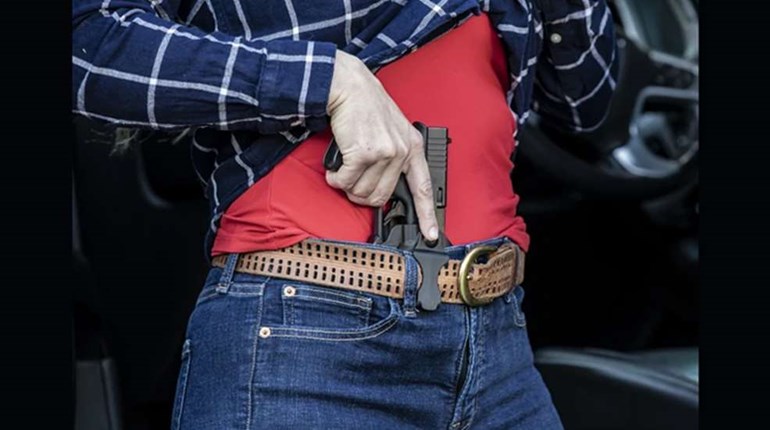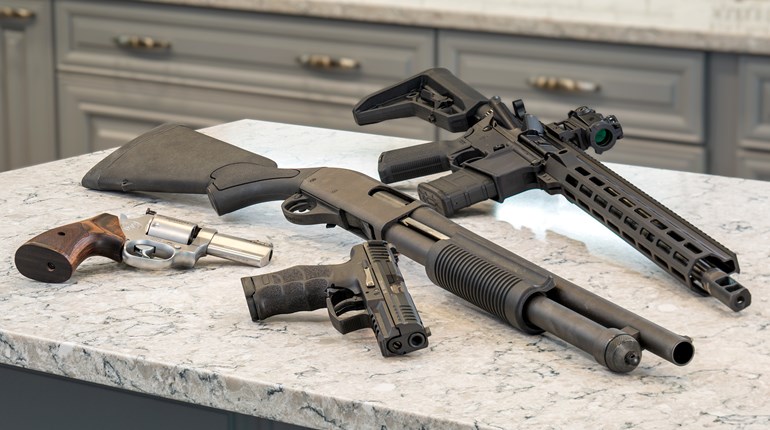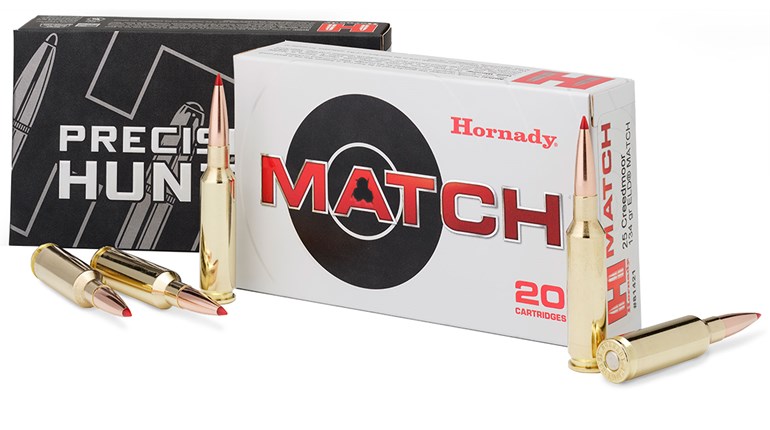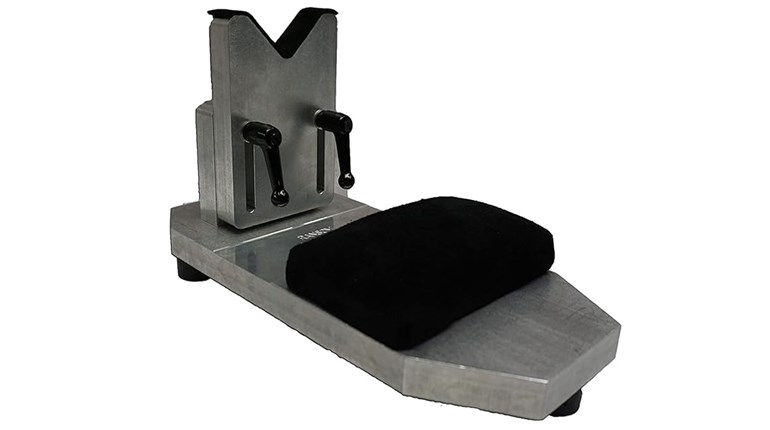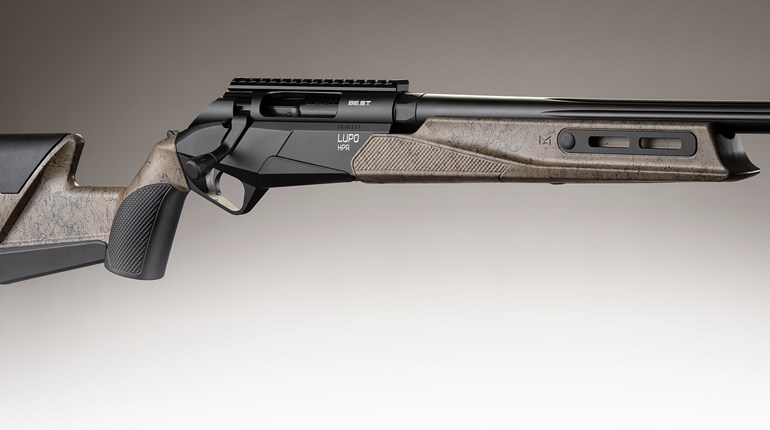
This article appeared originally as "Gun Locker: Smith & Wesson M&P45 Shield" in the January 2017 issue of Shooting Illustrated.
We’ve all heard (and in some cases, repeated) the clichés. “Defensive calibers should start with ‘4’.” “The .45 ACP cartridge has won two world wars and countless other conflicts.” “Nine millimeter is for [insert derogative of choice].” The .45 ACP cartridge is American pie, baseball and an eight-cylinder engine all rolled into one, an American legend born in battle and time-tested in excess of a century. Despite the incredible advances in ammunition performance in recent times that have significantly blurred the lines between big-bore and intermediate, we still have a fondness for the big, slow-moving lug.
When it comes to pocket pistols, though, the love affair cools somewhat. In a 38-ounce, 5-inch-barrelled 1911, the .45 is easy to shoot; pleasant, even. In a 15-ounce, polymer-frame micro-gun, on the other hand, it becomes brutish and painful. There’s a reason so few pocket pistols are available in “plus size,” and at first blush, Smith & Wesson’s newest Shield variant may appear to fill a very small niche. Other than the Kahr CM/PM45 and the Springfield Armory XD-S, (nearly) pocketable .45 ACP semi-autos are quite rare, and with reason. Truncating the action to fit a small pistol can have deleterious effects on reliability—witness the trials and tribulations of the Officer’s model 1911.
But this is 2016. We’ve had decades upon decades of technological advances, better materials and a real market for improvements. Smith & Wesson’s Shield series, debuted in 2012, offered traditional 9 mm and .40 S&W chamberings, but the “full-size” variant would take four years to come to fruition. It makes good sense, in that the market is slim and the extant product line from Smith & Wesson is well-received and mature. Whether you’re a member of the .45 ACP fan club, want a backup pistol in the same caliber as your primary or simply want more power, there’s plenty of reason to look into the newest Smith & Wesson M&P45 Shield.

The Smith & Wesson M&P45 Shield sports several subtle differences from its 9 mm and .40 S&W siblings. Most evident is the more-aggressive checkering on the grip that anchors the larger Shield in the hand, a helpful design that does not overreach into “cheese grater” territory. Also, visually distinct are the cocking serrations at the end of the slide, meant to assist in press-checks and charging of the pistol. Neither the 9 mm nor the .40 S&W versions sport serrations near the muzzle. Lastly, and the most subtle, the M&P45 Shield is slightly longer than the other variants, so check holster fit before changing calibers. The M&P45 Shield is not necessarily interchangeable with the 9 mm or .40 S&W variants.
All this is good, you say, but how does it shoot? All the changes and upgrades in the world don’t help if the pistol is physically punishing—and as the owner of a 12-ounce, .357 Mag. revolver, I’m familiar with punishing. Here’s where Smith & Wesson has clearly been working magic: the Smith & Wesson M&P45 Shield is not hard nor painful to shoot. It’s weird, too, because the .45 ACP version is actually .3 ounces lighter than the 9 mm variant (I’d wager the extra material machined out of the slide more than makes up for the .4-inch extra overall length).
Whether it’s the extra grippiness of the texturing or some anti-recoil voodoo, the .45-caliber Shield doesn’t feel substantially worse than the 9 mm. Granted, this is all with the caveat that most small handguns (loosely defined as one you can’t get a full three-finger firing grip on) are going to be more difficult to shoot accurately than full-size siblings, but once the decision is made to go small, there’s scant difference between the 9 mm and the .45 ACP Smith & Wesson M&P45 Shield with regard to felt recoil.

On the range, the Smith & Wesson M&P45 Shield proved nigh invulnerable. Recoil was noticeable but not punishing, accuracy was even better than expected and out of four different shooters who tested it, all had quite positive experiences. It’s not a bullseye pistol, but you shouldn’t expect that of it. Out of several hundred rounds fired, the worst that could be said of the entire experience was that the slide failed to lock back on an empty mag two or three times. Multiple bullet weights and varied construction—from FMJ to deep JHP and even the unique PolyCase ARX—fed, fired and ejected cleanly. The Smith & Wesson M&P45 Shield is accurate, reliable and packs plenty of punch—just what you want in a backup or “deep-cover” handgun.















